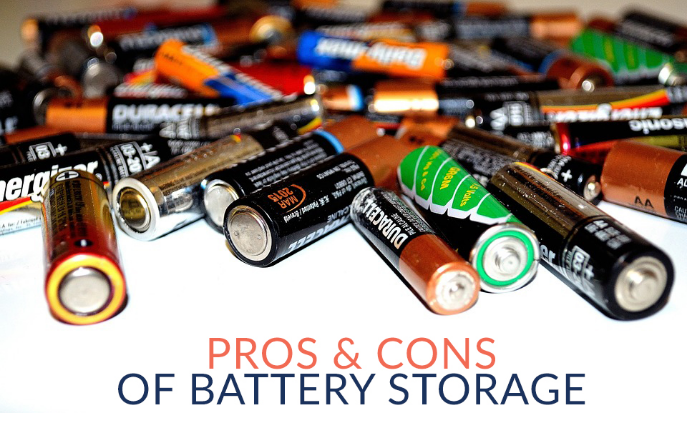Welcome back to our third blog on battery storage- if you’ve missed our previous blogs, you can find them here. We discuss the National Grid and why battery storage is important in a time we rely so heavily on a constant supply of energy in our day to day lives- and how affected we can become by a lack of energy when shortages affect our businesses.
Today, we’re looking at the pros and cons of a battery storage system. Giving you all the information about a system- the good and the bad, will help your business make an informed decision about if this storage system would be the best one for you.
Pros
There’s a huge potential for grid fees reduction; with savings of up to 80% and up to 20% saving on an electricity bill. A battery storage system on site doesn’t take up much space with the development of new technology, they can be the size of two car parking spaces. The benefits of this can be that the reliability of having such a system means that when the National Grid is suffering a shortage, transmissions fail or work is being done on the system, your business will never be affected. Generating your own power and storing it as chemical potential energy ready for use means your business will never suffer a power outage- and therefore will never suffer from reduced productivity due to the time lost when workers are waiting for the power to come back on. Similarly, another benefit is that though the National Grid works constantly to balance the system, weather and other factors that are uncontrollable do occur, and so when the shortages happen, your battery’s power can be sold back to the National Grid to generate additional funds for your business- which can offset the initial price paid for the system. Customers could expect to be earning £5k to £15k per MW of capacity pa.
The system will also save money on your energy bill because the battery can be charged overnight when the energy prices from the National Grid are cheaper (due to reduced demand) and then these sources used during the day when prices are peaked, so a business will avoid these peak prices.
Photovoltaic (PV) sites in the US for example, have no need for a connection to the grid for power which would be a huge cost as they can rely on their own standalone battery storage system. Their self-consumption of renewable energy is maximised and the value and quality of the renewable energy generated is increased.
Cons
One con is the space the battery takes up- however, we do hesitate to include this in the ‘cons’ section because, as we’ve stated, the space taken up with newer technology is the size of two car parking spaces. With larger battery storage facilities (those that have a bigger storage capacities) the storage might be slightly bigger. The same thought goes to the capital outlay for the system; whilst the money for this will begin to be drawn back with both the money it will earn from the Grid and the money it will save on energy bills, initially there is a cost.
A BMS (Battery Management System) is required as it will control both how and when a battery is charged and also discharged as well as preventing the batteries from overheating. Some batteries also require this maintenance in an attempt to prolong their usable life. The issue with a BMS is that for periods during the day- varying in length of time, the battery is unusable as it won’t allow discharge past a certain rate whilst it performs self-management checks.
Due to the power in the battery, there needs to be increased security in terms of a secure and fire-rated enclosure for the battery as there are potential hazards of electrical and fire hazards. When purchasing a battery storage system- keep in mind that battery degradation occurs (the useful life of a battery) and so you need to check with the supplier the years of warranty supplied and how the battery will perform for years to come.
In terms of productivity and financial benefits, the battery storage system has many more benefits than any negatives. Make sure you take a look at our past blogs on the topic- if you’d like a more in depth discussion about the system and how it can be tailored to fit your business- our expert energy advisers are always on hand!

